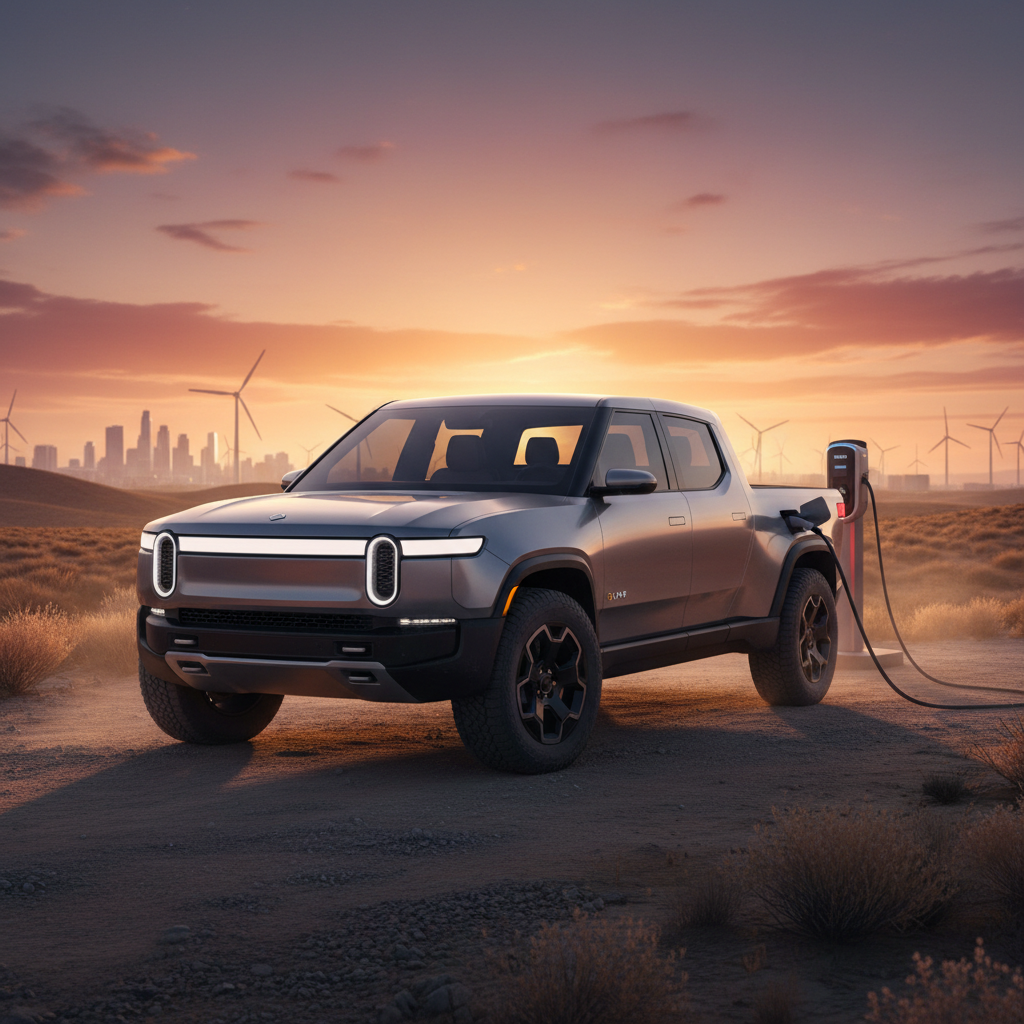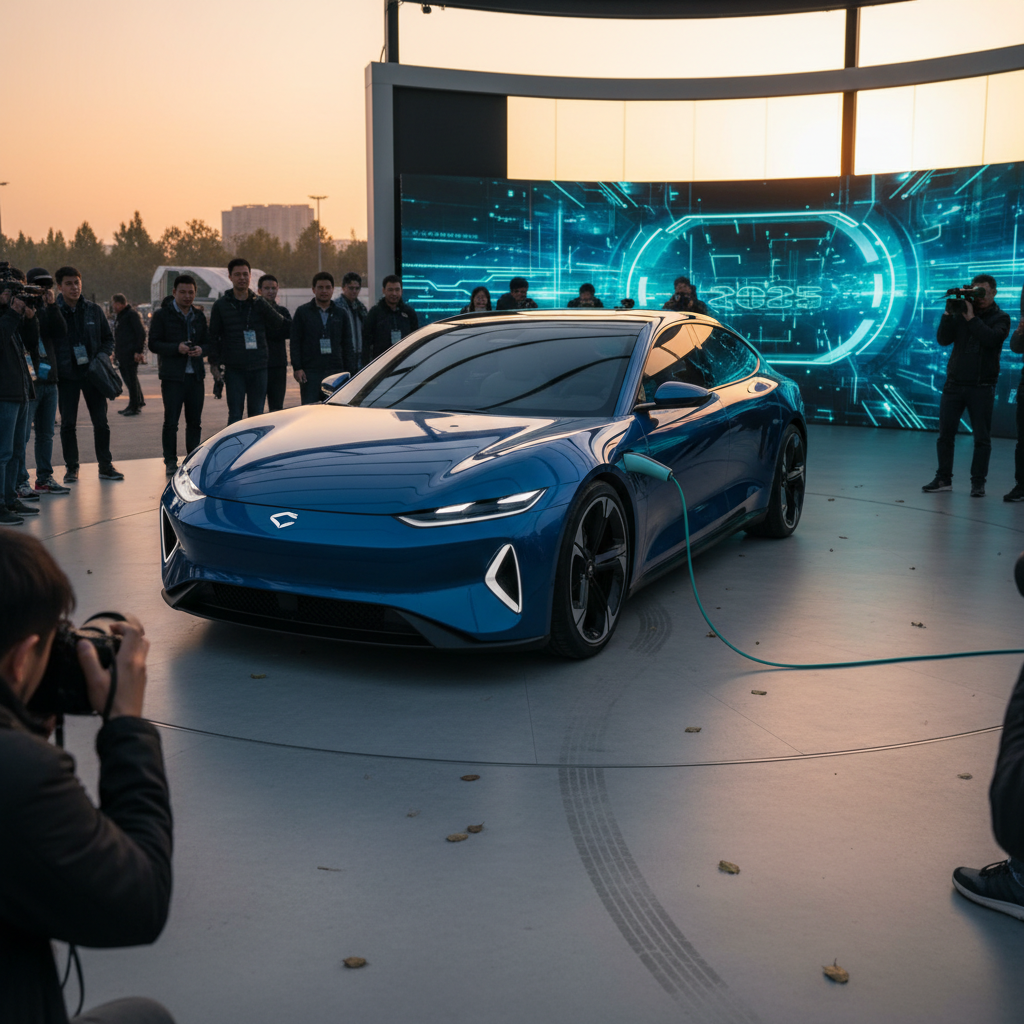If you’re hunting for the best budget electric car in 2025, you’ve probably noticed something annoying: the sticker prices on brand‑new EVs still haven’t dropped as much as the headlines promised. The good news is that smart buyers are getting around that by shopping the used market, where EV prices have fallen hard while the tech has aged very gracefully.
Quick takeaway
Why “best budget electric car” means something different in 2025
Two big shifts changed the budget EV conversation in 2025. First, used EV prices fell fast as more early adopters traded up to longer‑range models. Second, the federal EV tax credit was cut off for purchases after September 30, 2025, which means new EVs no longer get that easy $7,500 haircut on price. State and utility incentives may still help, but the easy math that made some new EVs cheap has largely disappeared.
Budget EV reality check in late 2025
So when you ask about the best budget electric car today, the honest answer usually isn’t a base‑trim, brand‑new EV with a tiny battery. It’s the car that delivers the most range, safety, and comfort for your money, often a slightly older EV that someone else already paid the depreciation on.
Important policy note
Cheap new EVs vs used EVs: where the real value is
What you get with a cheap new EV
- Full new‑car warranty and roadside assistance
- Latest safety tech and infotainment
- No question marks about battery history
- But: smaller batteries, lower range, and higher monthly payments
What you get with a budget used EV
- Much lower purchase price for the same (or more) range
- Often still under factory battery warranty
- Better‑equipped trims for the money
- But: you must verify battery health and charging history
Why used makes sense right now
Best budget electric car under $25K (used picks)
If your ceiling is around $25,000, the used market is where the genuinely smart buys live. Here are stand‑out contenders you should have on your shortlist if you want maximum value without sacrificing range or comfort.
Top used budget EVs worth hunting for
All typically available under $25K in late 2025, depending on mileage and options.
Kia Niro EV (2019–2022)
Why it’s great: Quiet, comfortable, and practical, with an EPA range around 239 miles in many trims. The Niro EV regularly tops lists of best used EV deals thanks to massive price drops from original MSRPs north of $40K.
- Typical used price: around $12,000–$18,000
- Range: ~239 miles
- Body style: Practical compact crossover
Best for: Commuters and small families who want a sensible all‑rounder.
Chevrolet Bolt EV / EUV
Why it’s great: The Bolt is the Corolla of EVs, honest, efficient, and much better to drive than you’d expect. Earlier recalls scared some buyers, but the fixed cars are now some of the strongest values in the EV world.
- Typical used price: roughly $15,000–$20,000
- Range: ~247–259 miles (depending on year and version)
- Body style: Hatchback (EV) or slightly taller EUV
Best for: City and suburban drivers who want range on the cheap.
Tesla Model 3 (2018–2021)
Why it’s great: Still the benchmark for efficiency, driving feel, and charging convenience. Early rear‑wheel‑drive Model 3s with 220–260 miles of real‑world range now commonly sit in the low‑$20Ks.
- Typical used price: around $20,000–$25,000
- Range: ~240–270 miles, trim‑dependent
- Body style: Compact sedan with big trunk opening
Best for: Drivers who road‑trip, or anyone who wants easy access to Tesla’s Supercharger network.
Don’t buy a used EV blind

Best budget electric car under $30K (new picks)
What if you absolutely want something brand‑new, with that fresh‑warranty smell? The list of truly cheap new EVs in the U.S. isn’t long, but there are a few worth a hard look if your budget stretches to the high‑20s or low‑30s.
Representative cheap new EVs in 2025
Approximate starting MSRPs and ranges for some of the most affordable new electric cars on sale in the U.S. in late 2025.
| Model | Approx. starting price | EPA range (base trim) | Body style | Budget verdict |
|---|---|---|---|---|
| Nissan Leaf (2025) | ~$21,800 | Up to ~212 mi | Compact hatchback | Cheapest door into new EV ownership, but modest range and older fast‑charging tech. |
| Hyundai Kona Electric (2025) | Low–mid $30Ks | Up to ~260 mi | Subcompact SUV | Strong range and everyday practicality; good if you can stretch the budget. |
| Chevrolet Equinox EV (2025) | ~$35,000 | Up to ~319 mi (select trims) | Compact SUV | Not “cheap,” but a lot of range and space for the money. |
| Upcoming 2026 Nissan Leaf | Just over $30,000 (S+) | Up to ~303 mi | Crossover‑style hatchback | Worth waiting for if you want new‑car warranty and serious range at the low end of the market. |
Always confirm current pricing and destination fees with your local dealer, MSRPs move around more than you’d think.
New vs used sanity check
Best budget electric car for different types of drivers
“Best” depends on how you actually live. The right budget EV for a 20‑mile urban commuter is not the same car you want if you’re shuttling kids and kayaks every weekend. Here’s how the smart picks shake out by lifestyle, assuming you’re shopping used to maximize value.
Budget EV picks by use case
Match the car to your life, not just the price tag.
Urban commuter on a tight budget
Best bet: Nissan Leaf (earlier generations) or Chevy Bolt EV.
- Daily mileage often under 60 miles
- Home or workplace charging available
- Can live with shorter highway range
If you rarely leave the city, you can trade maximum range for a rock‑bottom purchase price.
Suburban family with one main car
Best bet: Kia Niro EV, Hyundai Kona Electric, or VW ID.4.
- Need real back‑seat space and cargo room
- Regular weekend trips in the 150–200‑mile bracket
- Value comfort and safety features
These compact crossovers hit a sweet spot between range, practicality, and price.
High‑mileage commuters & road‑trippers
Best bet: Tesla Model 3, Kia EV6, or Hyundai Ioniq 5 (used).
- Long highway days and frequent road trips
- Need access to reliable DC fast charging
- Willing to pay a little more for charging convenience
Aerodynamics and charging speed matter more than 0–60 times in this lane.
Cold‑climate drivers
Best bet: Models with heat pumps (many Koreans and newer Leafs, some VW and Tesla trims).
- Winter slashes range, especially on older EVs
- Look for a heat pump and good pre‑conditioning options
- Consider slightly larger batteries than you think you need
Ask specifically how the car performs in winter and check owner forums for your region.

What a budget EV really costs to own
Sticker price is only the opening bid. Budget EV buyers should also think about electricity costs, maintenance, insurance, and how long they plan to keep the car. The good news: once you’re past the purchase, running a reasonably efficient EV is often cheaper than an equivalent gas car, especially if you can charge at home.
Budget EV cost checklist
1. Electricity vs gasoline
Even with utility rates up, many drivers pay the equivalent of $1–$1.50 per gallon for home charging. Public DC fast charging is more expensive, so your savings depend on how often you need it.
2. Maintenance and repairs
No oil changes, no timing belts, no exhaust system. You’re mostly dealing with tires, brake fluid, cabin filters, and the occasional software update. Over 5 years, that typically means less time in the shop than a comparable gas car.
3. Insurance on an EV
Some insurers still treat EVs as slightly premium products. Shop around and get quotes on specific VINs, battery replacement cost assumptions can move rates more than you’d expect.
4. Battery warranty window
Many EVs carry 8‑year/100,000‑mile battery warranties. Buying a 3‑ or 4‑year‑old EV gives you a large chunk of that coverage while letting someone else eat the early depreciation.
5. Home charging setup
If you own your home, plan for a 240V Level 2 charger install. That might be a few hundred dollars if your panel is ready, or more if you need an upgrade. It’s usually worth every penny in convenience.
6. Resale value
EV resale math is still evolving. Generally, newer‑generation cars with good range and NACS/CCS fast‑charging support will hold value better than older, short‑range models with orphaned fast‑charge plugs.
Used EVs and depreciation
How to shop smart for a budget electric car
Shopping for the best budget electric car isn’t about finding the lowest number on a windscreen. It’s about avoiding the handful of bad bets and quietly targeting the cars and trims that hold up best in the real world.
Smart‑shopping checklist for budget EVs
1. Start with your daily reality
Write down your real daily mileage, how often you take 150+ mile trips, and whether you can charge at home or work. That list should drive your short list more than any internet ranking.
2. Decide your minimum acceptable range
For most U.S. drivers, a used EV with a real 180–220 miles of highway range is the comfort point. Shorter‑range cars can be fine for city duty but feel cramped on winter freeway runs.
3. Check battery health, not just miles
A 60,000‑mile EV with a gently used battery can be a better buy than a 25,000‑mile one that lived on DC fast chargers. Look for an independent battery test or a platform like Recharged that includes verified diagnostics in a battery‑health report.
4. Confirm charging standards and cables
Make sure the car supports the connectors you’ll actually use, NACS, CCS, or CHAdeMO, and that your local charging network covers your routes. Adapters exist, but they’re not magic wands.
5. Read model‑specific quirks
Every EV has its lore: infotainment glitches, cold‑weather behavior, real‑world range vs EPA numbers. Spend an evening on owner forums or YouTube before you wire money.
6. Run the payment backwards
Instead of asking, “How much car can I get?”, decide the monthly payment you’re comfortable with and work backwards, including taxes, fees, and insurance. A slightly older EV may fit your life better and keep your budget calmer.
Where Recharged fits in
How Recharged helps budget EV buyers
If your priority is getting the best budget electric car you can afford, not the flashiest badge in the neighborhood, process matters as much as product. A $3,000 surprise on a battery pack is the opposite of “budget.” Recharged is designed to defuse exactly those surprises.
1. Battery‑first evaluation
Every vehicle on Recharged gets a Recharged Score battery health diagnostic. You see how the pack is performing, how it’s been charged, and what that means for future range and longevity.
2. Fair market pricing & financing
Recharged benchmarks every car against current EV market data, so you can quickly see whether a Niro EV or Model 3 is priced fairly. Built‑in financing tools let you explore payments without impacting your credit score.
3. Trade‑in, instant offer, and delivery
Have a gas car to unload? You can get an instant offer or list on consignment, then have your next EV delivered nationwide. If you’d rather see cars in person, Recharged also operates an Experience Center in Richmond, VA.
In other words, you don’t have to choose between a bargain and peace of mind. The whole point is to make that first, or next, EV feel like a smart financial move, not a science experiment.
Budget electric car FAQ
Frequently asked questions about budget EVs
The bottom line: the “best budget electric car” isn’t a single model, it’s the car that fits your life, your charging reality, and your monthly payment, without gambling on the battery. In 2025, that usually means shopping the used market, prioritizing range and battery health over badges, and using transparent platforms like Recharged to make sure the deal you’re getting is as solid as the car itself.



